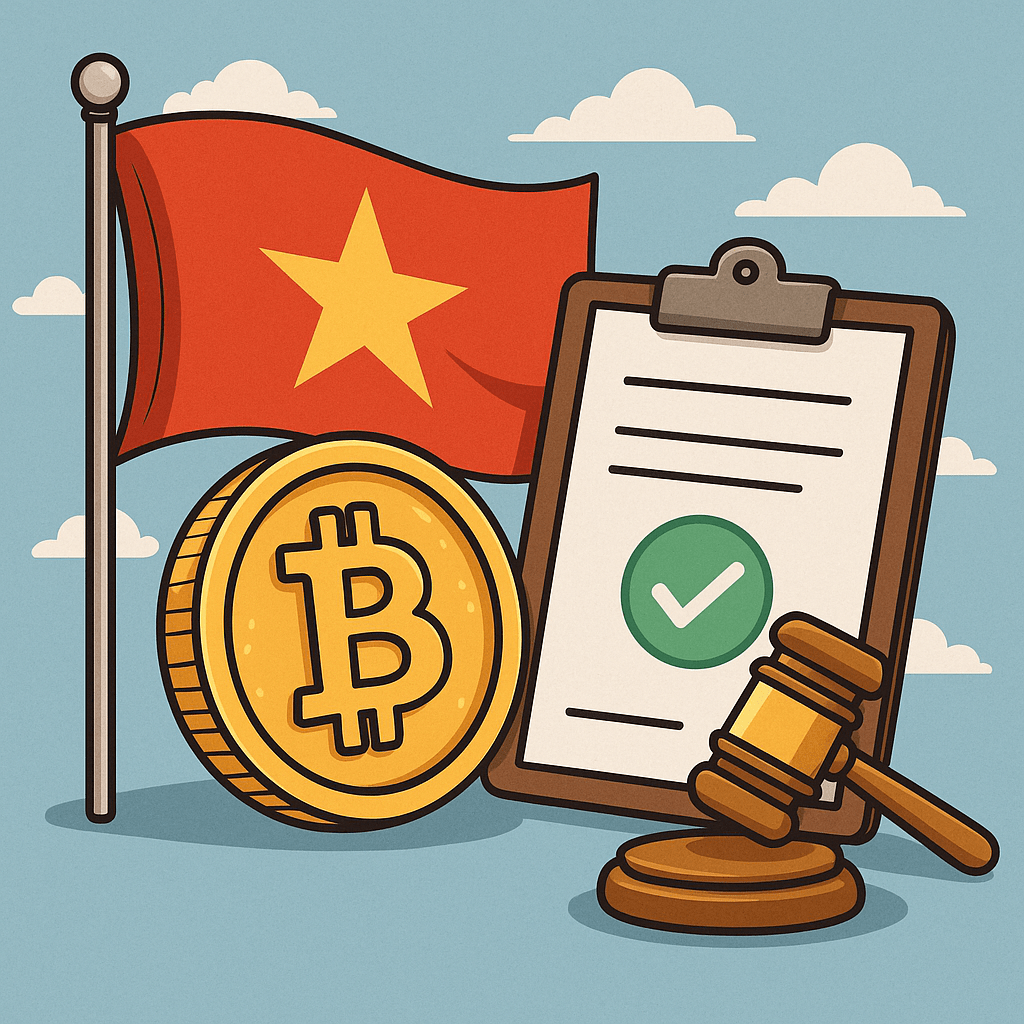
Vietnam Embraces Cryptocurrency: New Regulations for Digital Assets Approved
Vietnam has enacted legislation to regulate its digital asset landscape, aiming to bolster its standing in the global digital economy.
Vietnam’s crypto environment is witnessing significant advancements! On June 14, 2025, the country passed its Law on Digital Technology Industry, marking a pioneering step toward regulating its digital economy.
Local reports detail that, “the law defines crypto assets as digital assets utilizing encryption for validation during the processes of creation, issuance, storage, or transfer.”
This new legislation sets clear distinctions between virtual and crypto assets and aligns the nation’s anti-money laundering (AML) procedures with worldwide norms. Experts anticipate that this will enable Vietnam to exit the FATF’s grey list, where it has remained since 2023 due to compliance challenges affecting businesses engaged in international transactions.
Smart nations are embracing Crypto.
Vietnam has legalized digital assets under its new Digital Tech Industry Law, which will be effective from January 1, 2026.
This marks a pivotal moment for the country’s digital economy.Source — Crypto Diplomat (@diplomat_crypto) June 15, 2025
Importantly, the FATF has called on Vietnam’s authorities to implement robust regulations for virtual assets to enhance the country’s AML compliance standards. The government aims to translate this legislation into practical implementation by January 1, 2026, which is expected to lay a robust foundation for digital innovation across the country.
Understanding the New Vietnamese Crypto Law
Vietnam’s regulation classifies digital assets into virtual and crypto categories to foster innovation in sectors like artificial intelligence and semiconductor technology. The law articulates, while both asset types are secured via encryption, neither is classified as digital fiat currency or other financial instruments.
This legislation will allow a transition period for local businesses and regulatory bodies to organize their operations effectively. The Vietnamese legislation intends to align the country with other prominent global digital centers, introducing incentives such as tax breaks and research & development support to stimulate core technology advancements.
Le Quang Huy emphasized, “The recently passed law articulates Vietnam’s strategic ambition to cultivate a comprehensive semiconductor industry and gradually become a vital part of the global supply chain.”
Additionally, regional authorities have been encouraged to promote workforce training through subsidies while revamping education policies to embed digital technology skills in their national curricula.
Key Takeaways
- Vietnam’s new law distinguishes between virtual and crypto assets.
- Experts view this regulation as a pathway for Vietnam to escape the FATF grey list.
- The legislation is set to take effect on January 1, 2026.


